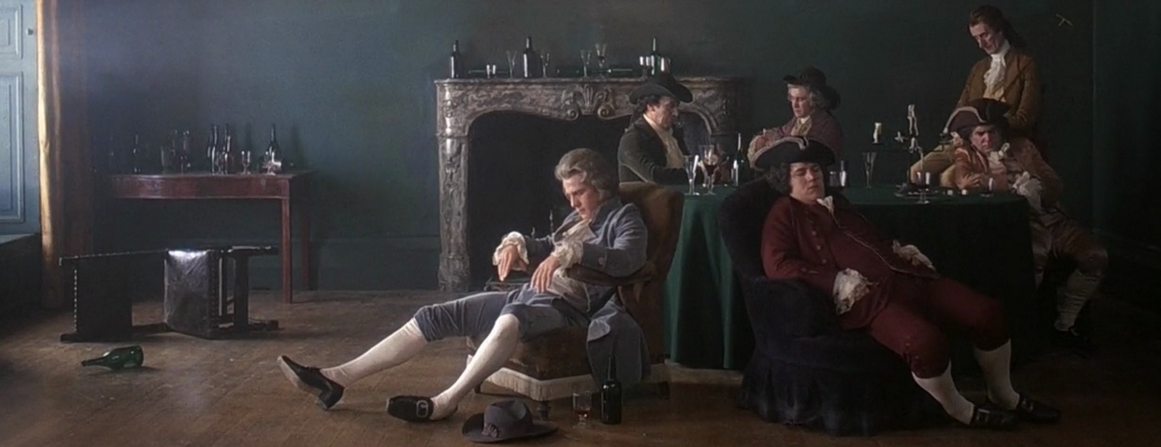Barry Lyndon is a Comedy

I came across a link to an article about Stanley Kubrick’s Barry Lyndon, linked to from Hacker News.
I wrote a couple of comment responses and have preserved them here.
dkh
I think this is true, but that the beauty is meant to serve as a farcical
contrast to the triviality and lack of meaning in Barry's story. The point was
really driven home with the final scene of the story being accompanied by
Handel's Sarabande, a work of monumental gravitas implying transcendent
tragedy, when in reality Barry was a nobody, a jerk with no morals or
conviction hardly deserving a second thought.
wobbleblob
Every time this film is mentioned, I'm reminded of the old fairly tale, the
emperor's new clothes.
Everyone, absolutely everyone who has good taste and knows something about
movie making seems to worship this film. Only those who are unfit for their
positions, stupid, or incompetent don't like it.
Let me then be the one to admit I'll be the stupid, incompetent one, but
willing to learn. Why is this film brilliant? I found it unbearable. Half the
story is told by an omniscient narrator (a device that simply doesn't work in
a film), the story advances at a glacial pace, the protagonist is completely
unlikable. Of course the backstory would feel somewhat pompous and dated,
based on a 19th century book, but in my uninformed, incompetent opinion
bringing this old fashioned feel unchanged to a 20th century medium didn't do
either of them any favors.
Kubrick made a number of classics that have either aged very well or become
a cherished document of the time when they were made. Can someone please
explain to me why this movie belongs up there with the Shining, 2001 and Dr.
Strangelove?
I watched this film without any previous exposure to sentiments about it, or Kubrick. I chose to watch it purely based purely on the title. I still came to the conclusion that it is one of the greatest films ever made.
- The photography is singular, this is self-evident
- The acting is outstanding
Complaints usually then come down to story and direction.
I interpret the direction as perfectly executing my understanding of Kubrick’s intended impact: Contrast between character (developed through the story) and sentiment.
A sentiment engineered with all the available emotional tools:
- The tone of the narration
- Slow pacing
- Divine Music
- Lavish Costume
All intended to convey the message - “Take this very seriously”. Imparting a gravity to every word and action. Be it glory, or tragedy.
What then of the contrasting element - Character?
As you say - The protagonist is unlikable. This wasn’t a mistake. He’s a selfish, spineless, jerk, of no inherent merit, who raises himself to mediocre heights through questionable behaviour, morals, and company only to be struck down again. A parody of the Greek tragic form.
What does that leave us with? A comedy!
It’s a simple proposition, a farcical contrast between story content, and story form. Told completely straight-faced and dry. In this light I find it to be one of the most original and daring pieces of cinematic story-telling I know of.
The punchline to the joke, however, seems to be that I’ve never found another person who shared this perspective, and most seem to take the the sentiment seriously and at face value… You seem like you might be someone who enjoys looking at it from this angle.
I haven’t yet read or watched any reviews of this film or the book it was based on, and was surprised to see the film being discussed on Hacker News, so in the tradition of a good internet commenter, I’m writing this comment before having read the article.
I’ll go ahead and read OP’s link now and see if any of my ideas are vindicated :)
After reading the article,
I found the thrust to be quite different to what I had expressed, however there was a reference to the “satiric novel”, so I guess it’s time to read the book for a definitive understanding of the intent of the author - William Makepeace Thackeray.